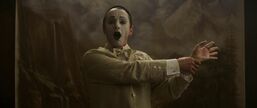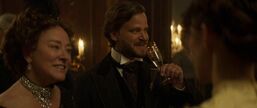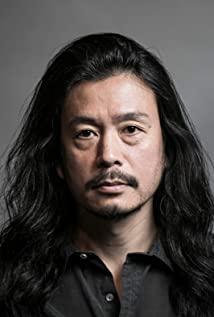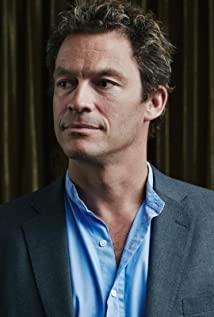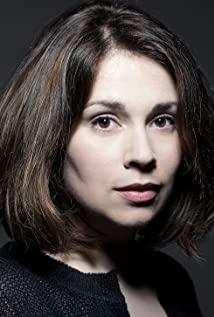"Colette" reminds me of a man. After many years, if it weren't for the "People" WeChat account that recently launched this article: "Nala on the Plain" , I think most people would have forgotten about her. I read and cried. I think of China only 20 years ago, I think of CCTV's "Half the Sky" program and its host Zhang Yue, and I think of the splendor and hustle and bustle at the end of the century. Our memories are so short.
1. Girls - the original nourishment of artistic life
Liu Xiaoshang is the Chinese version of Colette. Who is Colette? Wikipedia says: "French female writer of the first half of the 20th century, nominated for the Nobel Prize in Literature in 1948. Most of her works are novels about love. The most famous work is "Gigi", which was adapted She is also a mime and a journalist." She was born in a village in Saint- Sauveur , in the Yonne department, in the French region of Burgundy , between a garden and a library. , nature intoxicated her, she is good at expressing fragrance, taste and feeling. She pays great attention to the world and people's psychology, and observes the various manifestations of love with admiration: heartbeat, passion, jealousy and torture. The family was wealthy at first, but by the time Colette was of school age, poor financial management greatly reduced her father's income, and she could only attend a public school from the age of 6 to 17. It is already a good education.
How much like Liu Xiaotang, a rural girl in Guanzhong, at the beginning of her life. The sample used to be such a sensual and exquisite girl. There is nothing more suitable for planting the flowers of art than an imaginative beginning of life, which is not uncommon in the history of Western literature and art, from the Brontë sisters, Elizabeth Bishop to Sylvia Plath, Anne Seyle Keston, the talent of a young girl has been revealed to the greatest extent and revealed without hesitation. Even if she becomes a young woman, she can at least find a crooked and faint path and spread there. And the aura of the Guanzhong girl sample is destined to not grow into talent. After she entered marriage and had children according to the trajectory of "everyone is like this", the land seemed to trap her tightly. From a girl to a village woman, she saw that her "spirit" was gradually weakened. After being tortured, "watching TV" was the only way for her to communicate with the outside world. She found Zhang Yue and said shocking words like "I would rather suffer than be numb."
2. Women in Marriage - "Great Spirit" and "Great Morality"
The same is going into marriage and having children. In fact, the paths taken by the talented girls in the West are no different from those of the demos. However, the difference is that Emily Dickinson, who chooses to live in seclusion, clearly recognizes her connection with death, survival, and the outside world, and Elizabeth Browning, who chooses marriage, miraculously healed herself through marriage.” "Answer love with love"; but the sample, clearly has an "honest" husband and a "safe and stable" life, and the outside world has not interfered arbitrarily. Her husband can be said to be gentle and let her "fever", Accompanying her to Beijing to "seek Zhang Yue", her external environment seemed to be fine, but it made her feel like she was in a quagmire. Is the demo without the courage and perseverance of Colette? I think on the contrary, Colette, who had acquired the form of marriage as a sanctuary, quickly found his place in Parisian high society, from wandering in a crowded salon at first doing nothing, to complacently looking at things and enjoying material abundance and lust. Willie, as a full-fledged cultural businessman, is also her guide. By imprisoning her to write in her room, in this extreme and authoritarian way, she has fulfilled Colette's talent and made her discover her own desires. , feelings, in Paris, in Burgundy, all over France. As for the demo, she is conscious of creation and has the determination to run away. It is precisely because her environment is too "gentle" that this gentleness is a soft knife, a prison of formlessness, and a silent rule, which makes her Even out of "sorry" and "unable to bear" to leave her "innocent husband" and "such a good family", she finally voluntarily chose to give up herself, causing her to hold hands and see tears in her eyes and choked speechless.
Colette is so brave. Although her husband is really bad. Shortly after the marriage, when her husband went to a prostitute and rushed to a brothel, Colette had the first violent dispute with her husband, but loss always came with the advent of freedom. Now she has nothing to lose, so her desires begin to awaken, she travels between men and women, see how a bisexual woman from the French countryside can live in 19th century Paris Let it shine. She was in love, writing, lover, mistress, betrayal, loss, brokenness, reunion, Claudine series, mime... She had talent, and countless channels through which it could be seen. In the 21st century in China, Liu Xiaoshang, a village woman in Guanzhong, has nowhere to go. Her husband is not "bad" enough, and her biggest opinion is nothing more than muttering a few words, "It won't hurt if you think about it less." Compared with such "gentle confinement", the body is placed in the inner room "only responsible for writing" is a luxurious freedom. Compared with "the novels written can only be written under the pen name of the husband", the tie that cannot be broken free and the conscience cannot choose to leave is the biggest violation. Because Colette of Burgundy can talk about "great spirit", while Liu Xiaoshang of Guanzhong Plain must always talk about "great morality".
3. What is peasant nature—and on justice
When it comes to the identity of Colette and Liu Xiaojian as farmers, we have to mention the concept of "Chinese farmers". My master's course is about the history of new China's rural areas, and the research object is Chinese farmers. In recent years, I have also thought a lot about Chinese rural areas and Chinese farmers. China's agricultural civilization is a mature civilization after thousands of years. This civilization has produced spiritual treasures like peach blossoms. From the poems of the early people to the pastoral fields of the Tang Dynasty, it is the rut of the plow that travels across the land of the Central Plains, the fragrant solar terms, the caressing the stars, and the awe-inspiring destiny and human relations. If the "hooliganism of Chinese peasants" observed by Lu Xun in the Republic of China and modern avant-garde writers such as Mo Yan, Yan Lianke, and Bi Feiyu comes from this civilization that has been developing for thousands of years, I can't believe it. For this reason I have chosen land reform as a point of interest in various fields of the social sciences. I also chose only one place in Jiangnan, where the information is detailed, well-preserved, and second-hand research is abundant. My teacher's research on historical events such as "Fighting Landlords", "Collective Canteens" and "Work Points" from the perspective of economics gave me a new feeling that is different from the perspective of literature. These studies lead me to believe that the so-called peasants of the new China we see are a completely different kind of human beings. In China's modern revolution driven by intellectual elites, peasants had no right to participate due to lack of intelligence, but in the history of liberation and construction of New China, it was precisely because of this "intellectual disadvantage" However, the Chinese peasants were inevitably, ignorantly, but inspired and tragically involved in the new political revolution, becoming the rare, cruel and numb victims in human history. Corresponding to the aesthetic tradition of "picking chrysanthemums under the eastern fence" is the woman's weeping and complaining about the old wealth of the landlord, and corresponding to the pastoral dream of "the grass is poignant and the fallen flowers are colorful" is the "lazy person has a lazy blessing" style of "turning over". battle".
Why do I mention this history? I believe that the land reform has shaped the new personality of modern Chinese farmers. It is not only broken with the two thousand years of farming culture, but also wrapped in the unexamined market economy spirit that came with the reform and opening up. Ambiguous, ambiguous, overwhelmed, ambitious and active in today's China, they may be our parents and mothers, or our relatives and friends, and they are the writers and creators of every living new Chinese modern history. And I want to say that it is this unfortunate, distorted, accustomed to illegal thirst for justice, that invisibly dissolves like aqua regia, such as Liu Xiaoxian, who wants to break out of cocoons, rush and collide and eventually disillusion. Spiritual gold. Yes, I summed up this new peasant nature as the word "illegal", which is full of emotional longing for some kind of "justice", manifested in the demand for equality, as if justice is only about a problem of distribution, But it does not want to use rational means at all, it is very easy to incite and incite others, because what it does is repeat the unfortunate narrative to achieve its own interests. However, the value of justice is far deeper than this. In classical philosophy, justice is considered to be a kind of "harmony of the soul", that is, justice is a matter of the order of our own souls. Only when a person can rationally regulate and arrange his own desires and passions in his ethical life can he treat others equally in public life. Liu Xiaoxiang winced, saying "My husband didn't do anything wrong, it's not fair to him" (note that "fairness" comes up again). It is far better for a moderate revolution to manipulate people with a sense of guilt than for a violent revolution to control the body with terror. But they serve the same purpose—righteousness is lost forever.
Therefore, Colette's "bad husband" made her write, become famous, and find true love, while Liu Xiaoxiang's "good environment" made her back down, disappear, and accept her fate. Because compared with the great spirit, there really is no such thing as "great morality". When Liu Diao-samples, who were unable to recover from their valuable practice, were in the middle of their lives, they were finally defeated by "political correctness" and ""political correctness" about justice. grand narrative", although she told Zhang Yue that "my heart is reluctant to abide by it". So, who are the beneficiaries?
View more about Colette reviews



